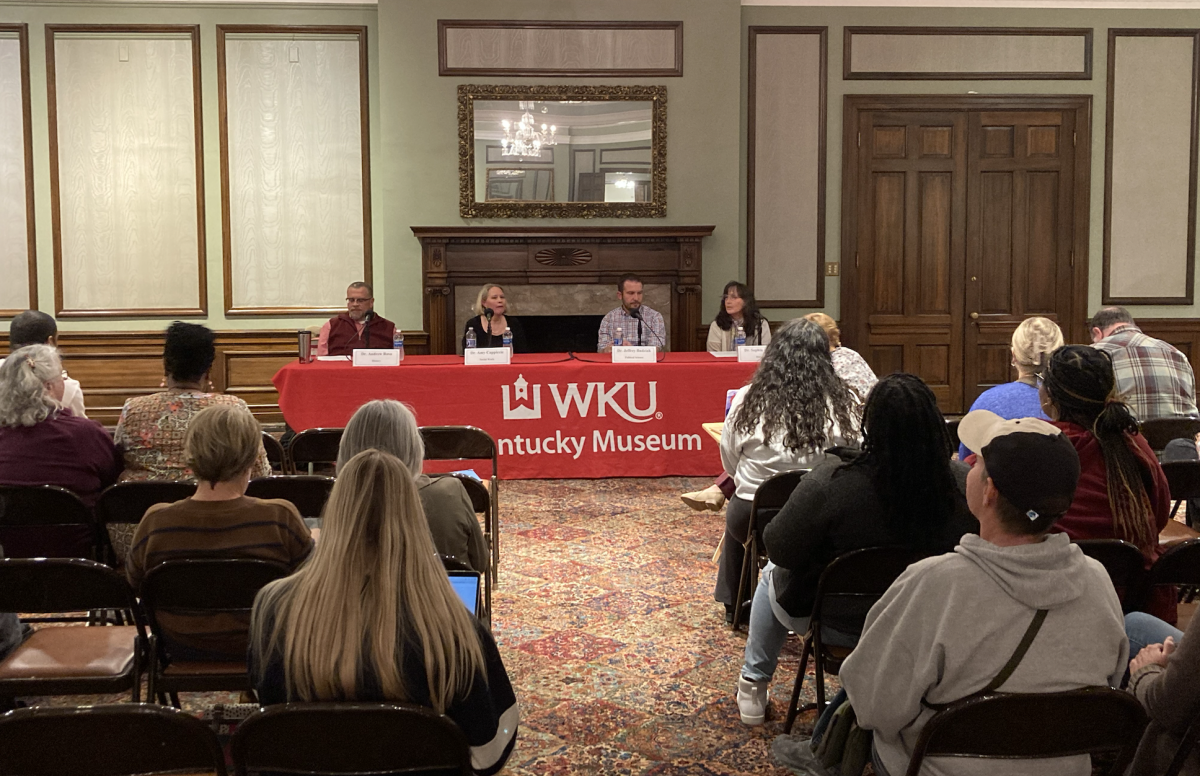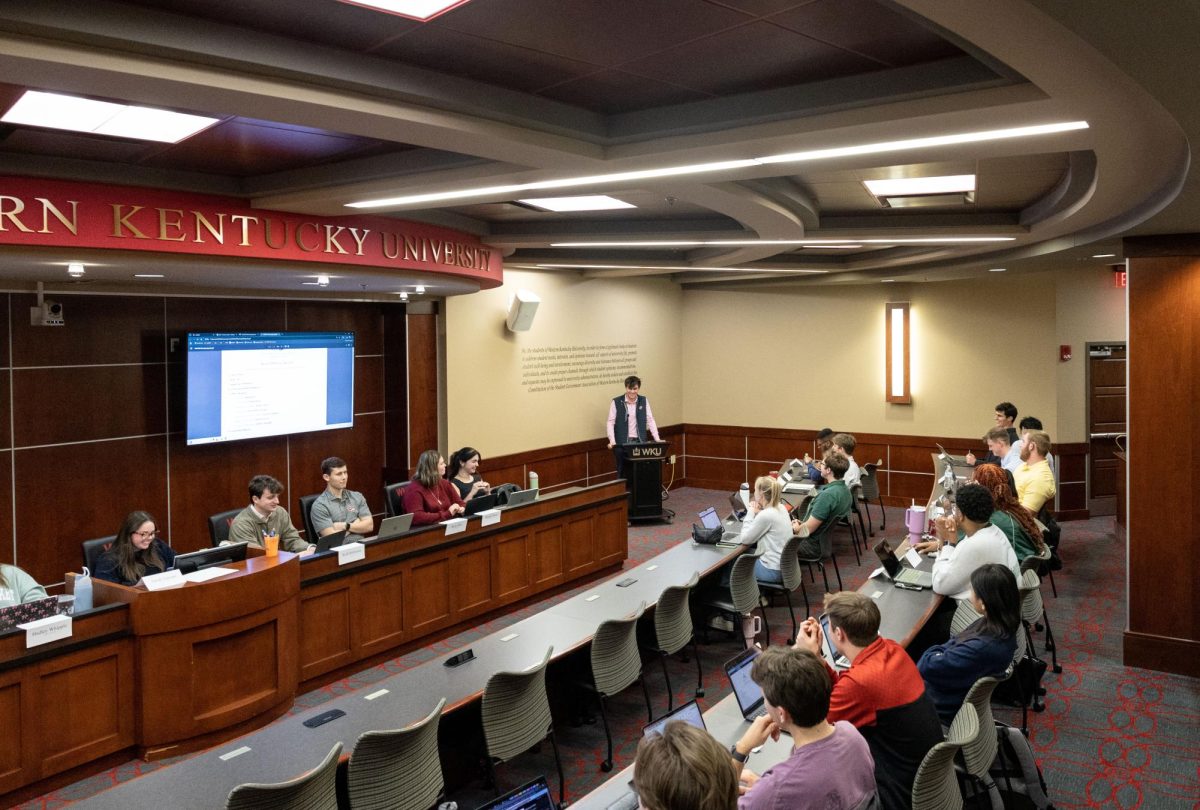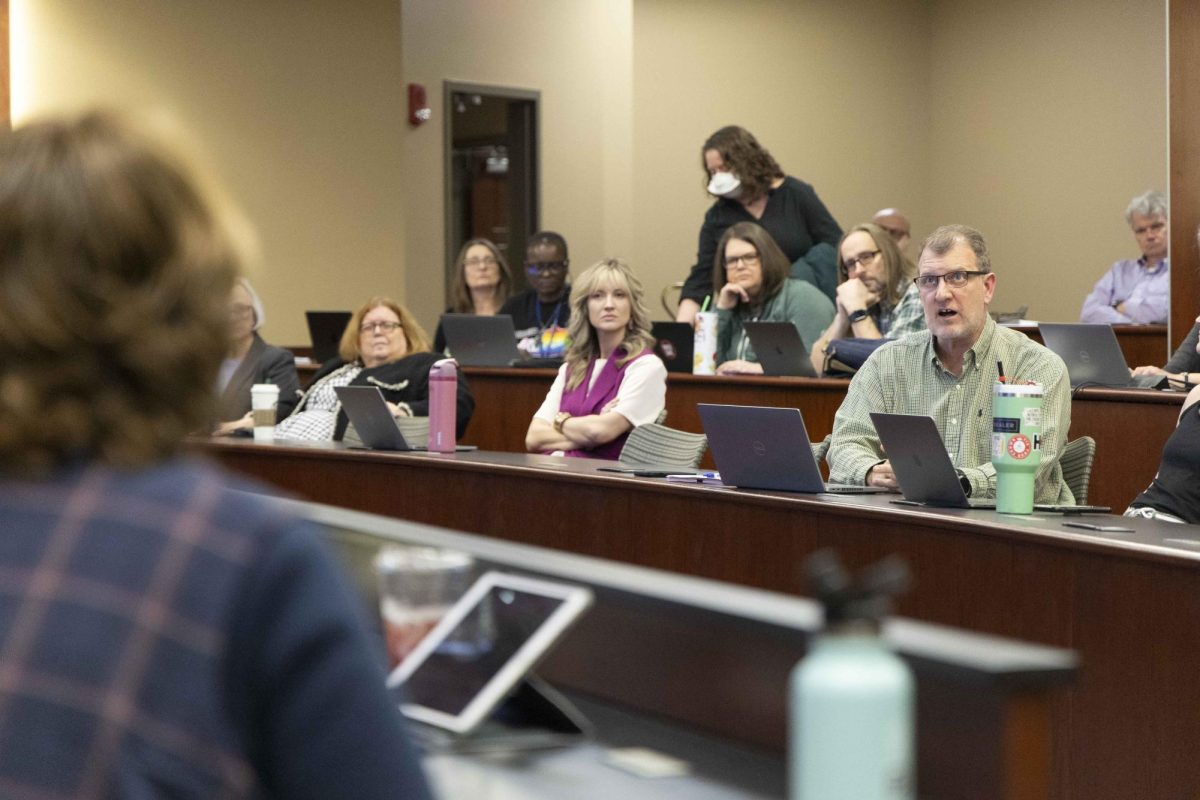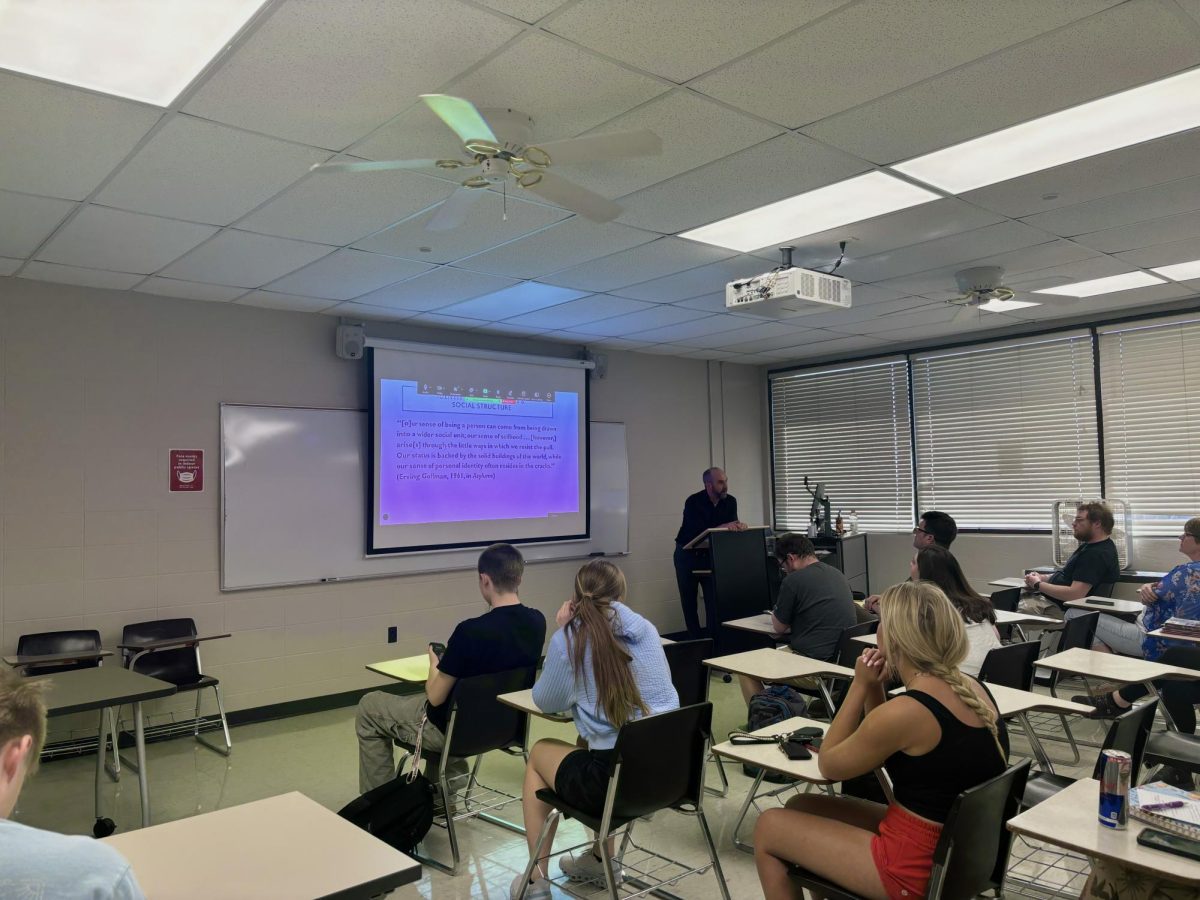The Kentucky Museum, in association with America 250 and the Kentucky African American Heritage Commission, hosted a public forum on Thursday, Nov. 14, addressing the reality of issues with critical race theory.
According to their official website, America 250 is an organization that works to strengthen American democracy in commemoration of America’s 250th anniversary, July 4, 2026.
The Kentucky African American Heritage Commission states on its website it is an organization focused on promoting significant African American culture and history in Kentucky.
The forum’s panel was made up of the Associate Dean of Potter College and Political Science Professor Jeffrey Budziak, Social Work Professor Amy Cappiccie, Associate African American History Professor Andrew Rosa and Religious Studies Professor Sophia Arjana.
The panel said what critical race theory is and what it means in rhetoric are often two different things.
“If you were to Google ‘critical race theory’ and read the narrowest definition, you’re going to learn about law schools,” Budziak said.
The panel said critical race theory, in its legal definition, is a framework on how to observe governmental processes and industrial practices that marginalize communities based on race.
The panel also said that it is important to realize critical race theory’s purpose is not to make specific people look bad.
“Despite its critic’s claims to the contrary, critical race theory does not focus on individual acts of discrimination,” Rosa said.
Rosa laid the foundation as to why critical race theory is discussed. He said African American communities have specifically been marginalized and targeted by American legislation, from slavery to Jim Crow to modern police brutality.
Cappiccie said she has students in her classes look at critical race theory through the lens of popular media to show modern microaggressions. Examples of this, she said, can be seen in Disney’s “Mulan” and “Pocahontas.”
“There are some definite cultural concerns with “Mulan,” one of the characters is named Mushu, which is a food,” Cappiccie said.
Cappiccie also said “Pocahontas” has inaccurate representations of Algonquin culture as well as problematic framing of the real events the movie was based on.
Arjana said critical race theory can extend beyond what we think of as race, extending into religion. She said that especially regarding Muslims society sees them as different the same way they see a different race.
“When people think about Muslim bodies, they think about bodies that are different, right?” Arjana said.
Arjana said figures like Muhammad Ali and Malcolm X have made Islam synonymous with African Americans.
Arjana explained critical race theory is important when teaching religious studies due to the stigma around Islam often exacerbated by its close ties with African American identity.
Budziak said the true importance of critical race theory is in how it helps society see the full story of America.
City Commissioner Carlos Bailey, who attended the forum, said as someone who majored in history, the American story is important to him.
“No matter if it’s good, bad, ugly, happy, sad, indifferent, why can’t we just teach it?” Bailey said.
Bailey continued that while it is called “critical race theory,” to him, it is just American history, a history he feels like should highlight all the groups that make up America.
Tyler Hunter, a social work graduate student, said he found the forum informative.
“I’m born and raised here, I’m Black, but it’s the first time I’ve ever heard about CRT [critical race theory] whenever I went to college and during undergrad,” Hunter said.
Hunter said he is worried about what the current federal government will do regarding critical race theory in higher education.
“I am afraid that it is going to be diluted down through the legislative process, as it has been, used as a fear tactic the past four years,” Hunter said.
News Reporter Anthony Clauson can be reached at anthony.clauson994@topper.wku.edu.








